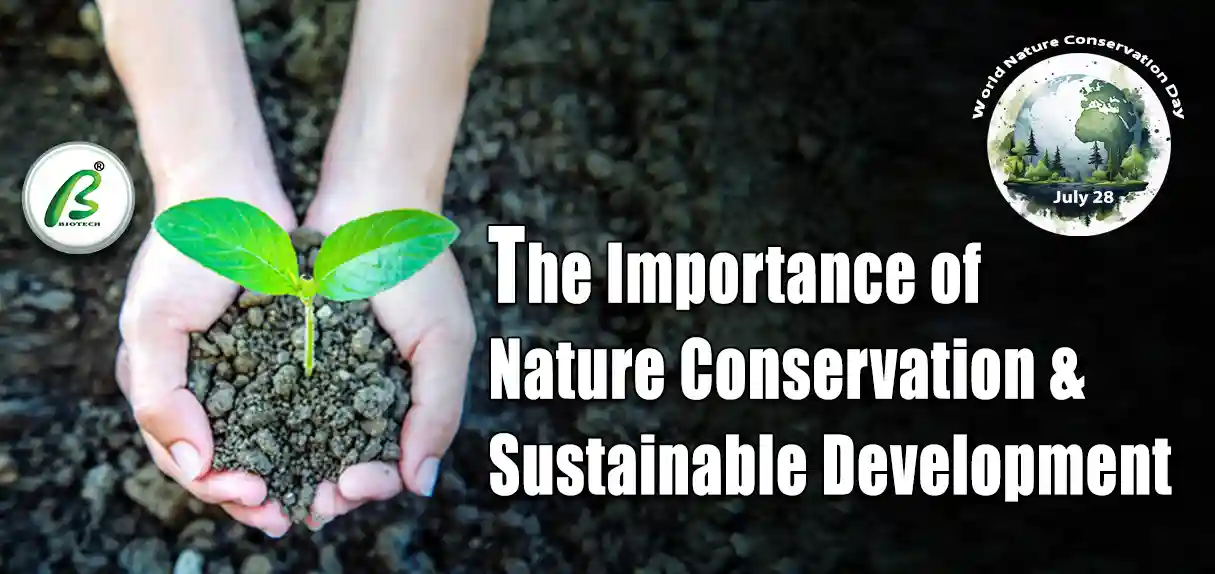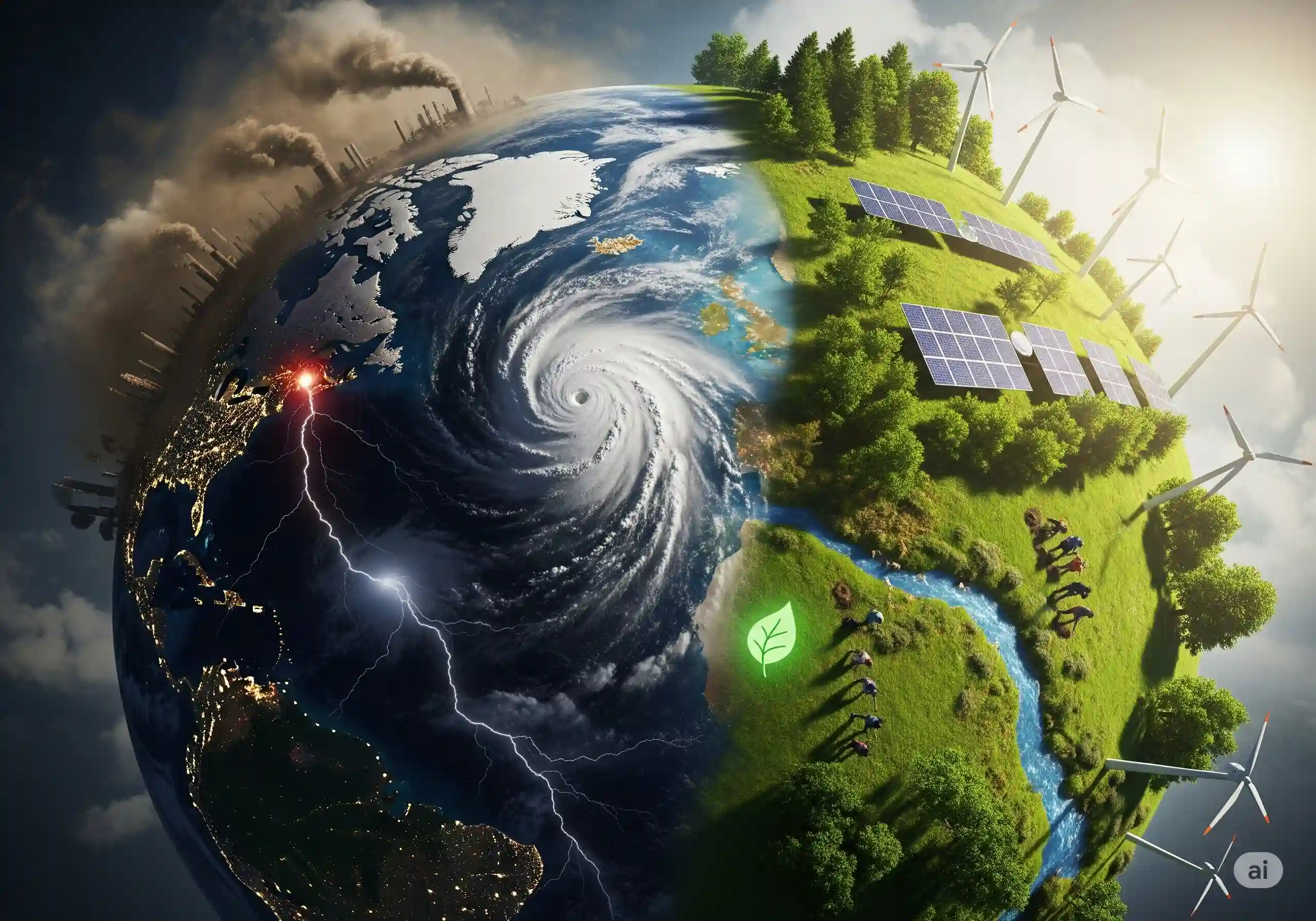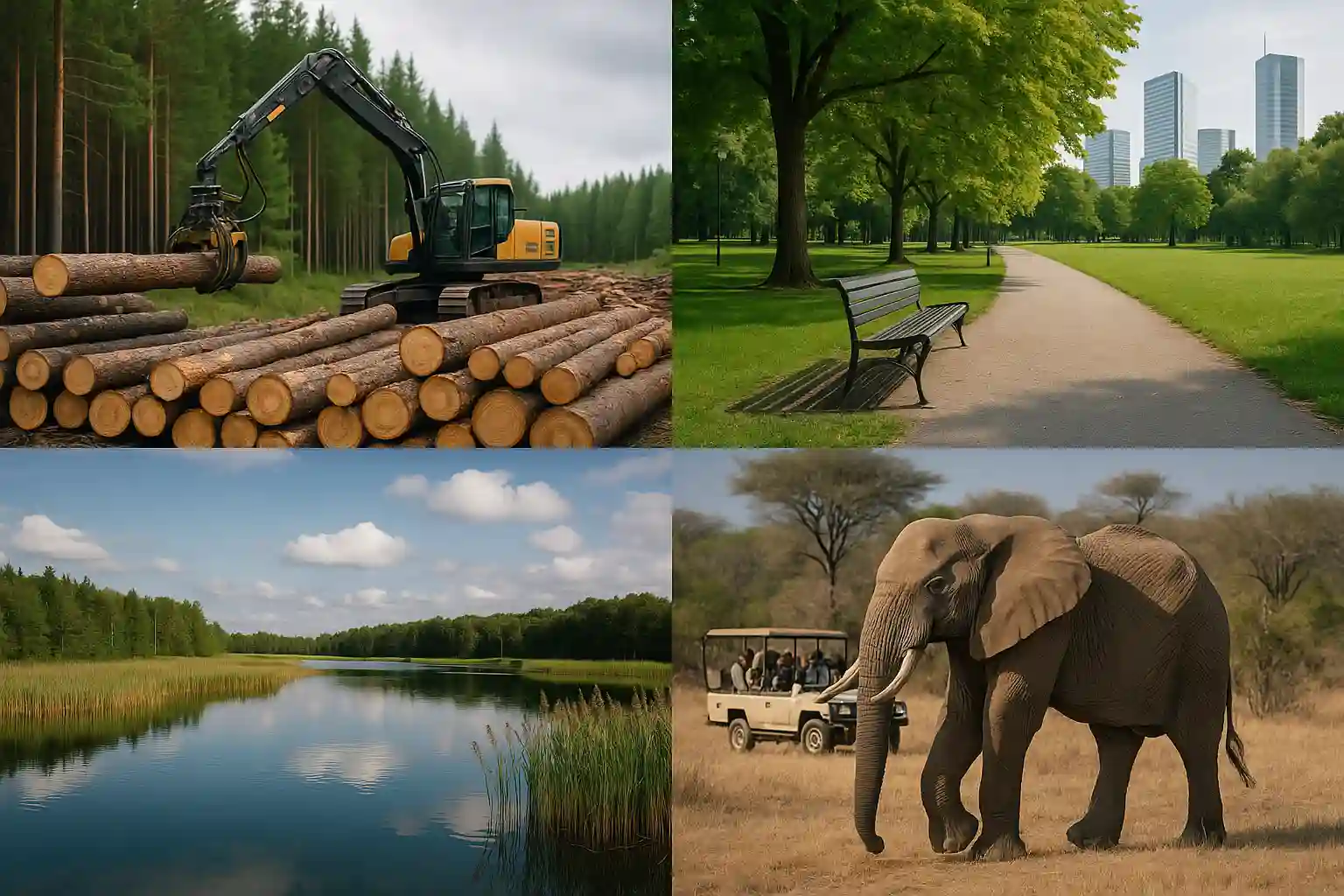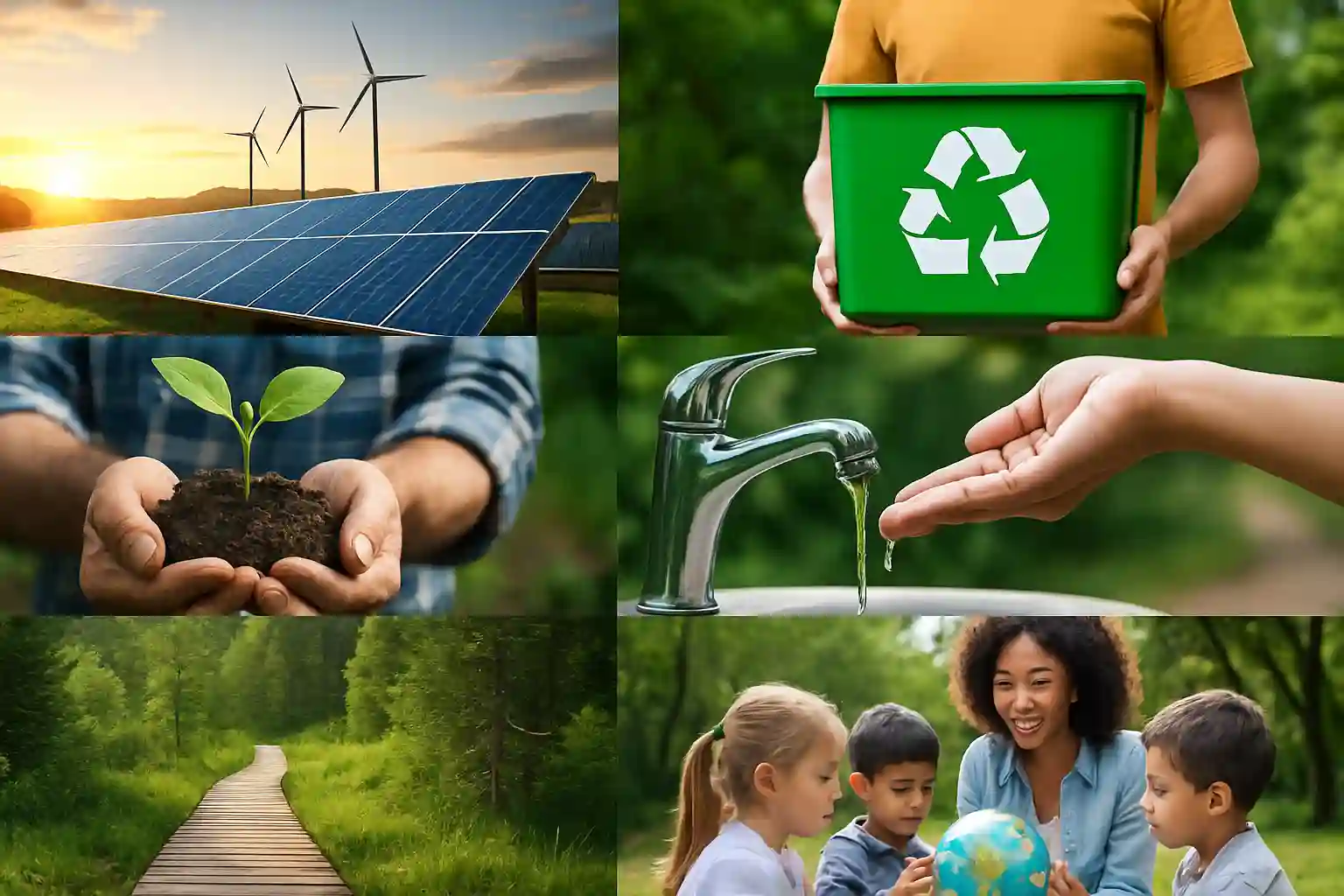
By Dr. A. Sajidas Managing Director, BIOTECH INDIA Renewable Energy International Consultant - Biogas, Organic Waste Management & Sustainable Development
In the modern era, the earth faces an unprecedented array of environmental challenges that threaten the very foundation of life as we know it. From climate change and deforestation to pollution and loss of biodiversity, the urgency to conserve our natural resources has never been greater. As an international consultant for sustainable development, I believe that understanding the importance of nature conservation and embracing sustainable practices are essential steps toward securing a healthier, more resilient planet for current and future generations.

Our planet is a complex, interconnected ecosystem that sustains all forms of life. Natural resources such as water, air, soil, forests, and biodiversity are the backbone of our existence. However, human activities-industrialization, urbanization, overconsumption, and pollution-have severely damaged these vital systems.
Climate change is perhaps the most pressing issue we face today. Rising global temperatures, melting glaciers, and extreme weather events threaten life on Earth. According to the Intergovernmental Panel on Climate Change (IPCC), human activities have caused approximately 1.0°C of global warming above pre-industrial levels. If we fail to curb emissions and adopt sustainable practices, the future may hold even more devastating consequences, including sea level rise, food insecurity, and loss of biodiversity.
Deforestation and habitat destruction have accelerated at an alarming rate. Every year, millions of acres of forests are cleared for agriculture, urban development, and logging. Forests are home to over 80% of terrestrial species and play a crucial role in absorbing carbon dioxide. Their destruction not only threatens wildlife but also contributes to climate change.
Pollution, whether in the form of plastic waste in oceans, air pollutants in cities, or chemical runoff into water bodies, degrades ecosystems and harms human health. The World Health Organization estimates that approximately 7 million premature deaths occur annually due to air pollution alone.
Loss of biodiversity is another critical concern. When species go extinct, ecosystems destabilize, losing their resilience and ability to provide essential services like pollination, water purification, and climate regulation. The current rate of species extinction is estimated to be 1,000 times higher than the natural background rate, primarily driven by human activities.
At first glance, conservation might seem like an act of preserving the environment for its own sake. While protecting ecosystems and species is vital, the benefits of conservation extend far beyond nature itself. They are intrinsically linked to human well-being, economic stability, and social equity.
1. Economic Benefits
Natural resources underpin many industries-agriculture, fisheries, forestry, tourism, and even energy. Sustainable management of these resources ensures their availability for future use. For example, forests provide timber, medicinal plants, and non-timber forest products, supporting livelihoods and local economies.

Ecotourism, which promotes responsible travel to natural areas, generates billions of dollars globally and creates jobs. Protecting biodiversity hotspots attracts tourists, contributing to local economies while incentivizing conservation.
Health and Well-Being
Healthy ecosystems purify air and water, regulate temperatures, and provide food and medicinal resources. Conversely, environmental degradation leads to health issues, malnutrition, and increased vulnerability to natural disasters.
Nature also offers psychological benefits-green spaces reduce stress, improve mental health, and foster social cohesion. In urban environments, parks and natural reserves provide essential respite from concrete jungles.
Climate Regulation
Forests, wetlands, and oceans act as carbon sinks, absorbing greenhouse gases and mitigating climate change. Wetlands, for example, store vast amounts of carbon and buffer against floods and storm surges. Protecting these ecosystems is a natural and cost-effective way to combat climate change.
Biodiversity and Resilience
Diverse ecosystems are more resilient to environmental shocks. They adapt better to changing conditions and recover faster from disturbances. Protecting biodiversity ensures the stability of ecological processes that support life on Earth.
Sustainable development is the pathway to balancing economic growth with environmental stewardship and social equity. It is about meeting present needs without compromising the ability of future generations to meet theirs. The United Nations' Sustainable Development Goals (SDGs) serve as a blueprint for global efforts to address these intertwined challenges.
1. Intergenerational Equity : Ensuring that future generations inherit a healthy planet.
2. Integrated Approach : Recognizing the interconnectedness of social, economic, and environmental dimensions.
3. Participation : Engaging communities, indigenous peoples, and stakeholders in decision-making.
4. Precautionary Principle : Taking proactive measures to prevent environmental harm when scientific evidence is uncertain.

1. Adopting Renewable Energy Sources
Transitioning from fossil fuels to solar, wind, hydropower, and geothermal energy reduces greenhouse gas emissions and dependence on finite resources.
2. Promoting Circular Economy
Encouraging recycling, reusing, and reducing waste minimizes environmental impact and conserves raw materials.
3. Implementing Eco-Friendly Agriculture
Practices such as organic farming, crop diversification, and water-efficient irrigation protect soil health and biodiversity.
4. Conserving Water Resources
Efficient water management, rainwater harvesting, and water-saving technologies help address scarcity issues.
5. Protecting Natural Habitats
Designating protected areas, restoring degraded ecosystems, and promoting sustainable land-use practices safeguard biodiversity.
6. Raising Awareness and Education
Empowering communities with knowledge about environmental issues motivates collective action.
Creating a sustainable future requires concerted efforts across all levels of society:
Individuals : can reduce waste, conserve energy, support eco-friendly products, and advocate for environmental policies.
Communities : can organize conservation projects, promote sustainable livelihoods, and educate members about environmental stewardship.
Governments : must enact policies that protect natural resources, enforce environmental laws, and invest in sustainable infrastructure.
International cooperation is also vital. Climate change and biodiversity loss are global issues that transcend borders. Agreements like the Paris Agreement and the Convention on Biological Diversity exemplify collective efforts to address these challenges.
Every one of us has a role to play in conserving our planet. The choices we make today will determine the health of our environment tomorrow. Here are some simple steps:
⇒ Reduce, reuse, recycle.
⇒ Support renewable energy initiatives.
⇒ Plant trees and protect existing forests.
⇒ Use water and energy efficiently.
⇒ Avoid single-use plastics.
⇒ Support conservation organizations and policies.
⇒ Educate others about the importance of sustainability.
The future of our planet depends on our actions today. Protecting natural resources, conserving biodiversity, and adopting sustainable development practices are not optional-they are essential for our survival and well-being. As global citizens, we have a moral obligation to care for the Earth and ensure a sustainable legacy for future generations.
Let us remember that nature is not a commodity to be exploited but a sacred trust to be preserved. Together, through awareness, responsibility, and action, we can build a world where humans and nature coexist harmoniously-today, tomorrow, and forever.
Telephone: +91-471-2331909, 2321909, 2332179
E-mail: mailtobiotech@gmail.com


Ernakulam (Cochin)
Telephone: +91-484-4858695
E-mail: mailtobiotech@gmail.com


Kozhikode (Calicut)
Mob : +91-9446-000-962
E-mail: mailtobiotech@gmail.com


Telangana
Telephone: +91 40 29330078 , +919446000968
E-mail: gtp.nird@gmail.com

